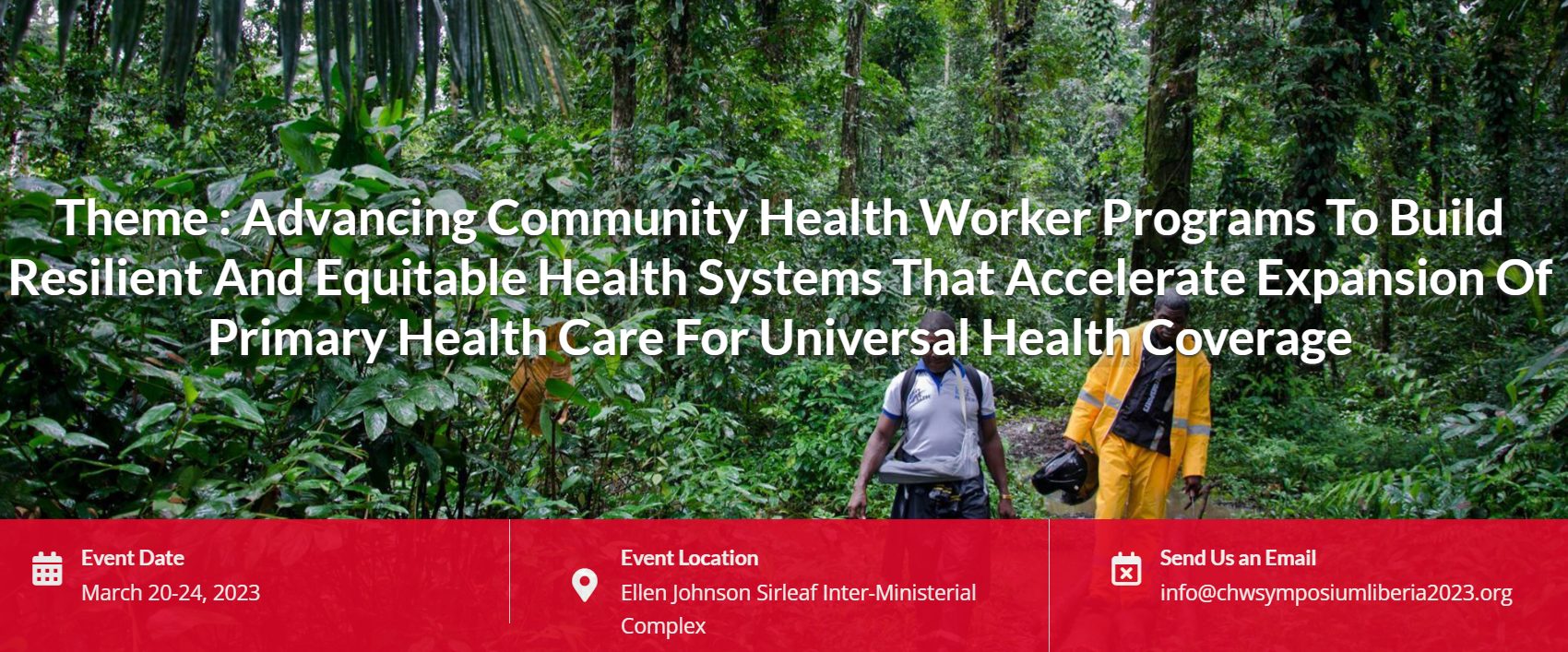
ReBUILD at the International Community Health Workforce Symposium
9 March 2023
We’re pleased to announce that our colleague, Haja Wurie, from the College of Medicine and Allied Health Sciences at the University of Sierra Leone, will be presenting some of the work she has done as part of the ReBUILD for Resilience project at the 3rd International Community Health Workforce Symposium [opens new tab] in Liberia this month.
In a session entitled New priorities to support community health workers in fragile settings: addressing gender, security, innovation and dialogue, Haja will present on the importance of understanding community health workers’ (CHWs) experience using a gender lens. This is critical to developing gender equitable approaches to supporting their critical roles in the COVID-19 response and future crises. She will outline how these approaches should focus on support from families, communities, and health systems.
Filling the personnel gap
Many countries, and particularly fragile contexts, have a shortage of formal health workers and are increasingly looking to Community Health Workers (CHWs) to fill the gap and reach the most marginalised. Experiences of CHWs are shaped by gender roles and relations which are context-embedded and dynamic. The COVID-19 pandemic has demonstrated the value of CHWs in the response. The study Haja is presenting explored the roles of CHWs and their gendered experiences during the COVID-19 pandemic in fragile settings. This study contributes evidence on gender equitable approaches to supporting CHWs to fulfil their vital role in the COVID-19 response and future crises.
The COVID-19 pandemic with lockdowns and school closures has brought additional stresses for families worldwide, with a gendered division of labour meaning this is acutely felt by women. CHWs’ experiences also reflect these patterns and gendered stresses are magnified by the work being poorly paid or not remunerated in some contexts, and being seen as risky. CHWs still largely enjoy trust and are embedded within their communities with a strong willingness to serve. However, in some instances during COVID-19, CHWs experienced fractures in this trust and were viewed as carriers of the virus; and the ways in which this stigma was experienced were gendered. CHWs experienced additional roles and responsibilities on top of their existing routine work and family commitments, with gender differences. However, they did not always have the necessary support required, e.g. supervision, mental health support, personal protective equipment and training.
The presentation is based on a ReBUILD study – The gendered experience of close-to-community providers in fragile and shock-prone settings: implications for policy and practice during and post COVID-19 – conducted in settings in four fragile countries – Lebanon, Nepal, Myanmar and Sierra Leone. The team used a qualitative research study design to generate in-depth and contextual information using three methods: document review, individual interviews or focus group discussions with CHWs, and key informant interviews with local stakeholders. They used gender analysis and gender and CHW frameworks to guide data collection and analysis.
The paper this presentation was based on (read it here) was authored by a number of colleagues working across the ReBUILD project: Joanna Raven, Kyu Kyu Than, Hnin Kalayar Kyaw, Rouham Yamout, Fouad Fouad, Joanna Khalil, Haja Wurie, Lansana Hassim, Abriti Arjyal, Obindra Chand, Ayuska Parajuli, Sally Theobald, Wesam Mansour and Kate Hawkins.
At the symposium
The 3rd International Community Health Workforce Symposium will take place in Monrovio, Liberia, and aims to facilitate the global exchange of knowledge and solutions to scale and sustain Community Health Programs in order to achieve Universal Health Coverage (UHC).
“We are delighted that ReBUILD will be represented at the upcoming conference on Community Health Workers. Some of us have supported this conference since its successful inception in Uganda, through its second convening in Bangladesh. It is wonderful that – although delayed by the COVID-19 pandemic – the conference continues to thrive as an important venue for learning and the exchange of knowledge.” Kate Hawkins, Communications and Research Uptake Manager
The symposium will focus on sharing best practices on the complimentary and necessary systems to support scale. The conference is taking place from the 20 to the 24 of March 2023. You can get more information on how to go about registering on the website [opens new tab] We hope to see you there!